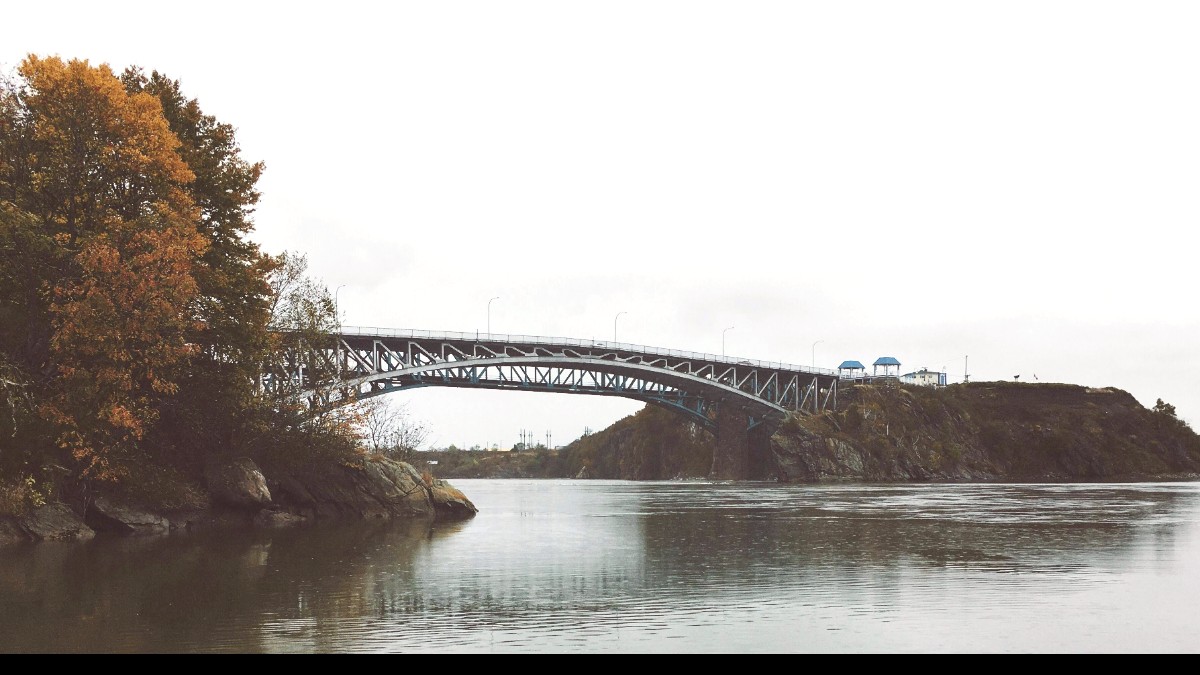
New Brunswick, Canada
Saint John's weather can shift quickly. Layering is a good strategy for any season. Spring (April - May) has cool to mild temperatures, 0°C to 15°C (32°F to 59°F). Rain is common, and fog often occurs near the Bay of Fundy, which can limit visibility.
Summer (June - August) brings warm and humid conditions, averaging 15°C to 25°C (59°F to 77°F). Temperatures may reach over 30°C (86°F) with humidity. Moderate precipitation happens, often as thunderstorms.
Whale Watching: Mid-June to mid-October, with peak viewing in August and September.
Bay of Fundy Reversing Falls Rapids: View at different tidal stages throughout the day. Check tide tables for dramatic effects.
July - August
Warmest weather, all attractions open, ideal for whale watching.
Highest prices, larger crowds, book in advance.
May-June, September-October
Pleasant temperatures, fewer crowds, lower prices possible, good for hiking.
Reduced hours for some attractions, unpredictable weather.
November - April
Lowest prices, fewer tourists, winter sport opportunities outside city.
Cold, heavy snow and ice, many seasonal attractions closed, shorter daylight.
Late spring, summer, and early autumn (May-October) present the best conditions for hiking and other outdoor pursuits.
Festivals predominantly happen in summer, including the Buskers Festival and Area 506 Festival.
Summer months can be humid, making high temperatures feel warmer.
September offers spectacular fall colors across the region.
Coastal areas may experience different microclimates than inland regions.
Always check tide tables for optimal viewing of the Reversing Falls.
For high season, lodging and activities book quickly.
Requirements vary based on your nationality and method of travel.
Citizens of visa-exempt countries (e.g., EU, Australia, Japan) need an Electronic Travel Authorization (eTA) for air travel. U.S. Citizens usually need no visa or eTA for tourist visits, but carry valid proof of citizenship.
Proof of onward travel (return ticket), accommodation details, and a letter of invitation (if visiting family/friends) are helpful. Specific photo requirements apply for visa applications.
Costs vary based on your travel style and preferences.
Canada has high safety standards, but some precautions are always wise.
A daily budget of $95 - $205 CAD. This covers hostel beds or motels, groceries or fast food, and public transit or walking.
Affordable accommodation and meals.
Limited paid activities or frequent transport options.
A daily budget of $205 - $440 CAD. This includes mid-range hotels, casual restaurants, and some taxis or ride-shares.
Comfortable stays with varied dining and activities.
Frequent premium tours or luxury dining would increase costs.
A daily budget of $440 - $950+ CAD. This allows for boutique hotels, fine dining, and frequent taxis/ride-shares, alongside premium tours.
High-end experiences and flexibility in spending.
Unlimited spending would exceed this estimate.
| Service | Standard Tip | Notes |
|---|---|---|
| Restaurants | 15-20% of pre-tax bill | For good service, customary. |
| Bars | $1-$2 per drink or 15-20% | Depends on the type of service. |
| Taxis/Ride-sharing | 10-15% of fare | For a pleasant ride. |
Pack a personal health kit to address minor issues and stay comfortable.
Routine vaccinations (MMR, DTP, polio, influenza) should be up-to-date as per your home country's recommendations.
Obtain personalized advice well in advance of your travel.
A copy of your prescription or a doctor's letter is helpful for international travel.
Pack a comprehensive first aid kit.
Include: Band-Aids, antiseptic wipes, pain relievers (Acetaminophen/Ibuprofen), allergy medication, motion sickness tablets (for boat tours), Anti-diarrhea medication, blister treatment, gauze, and medical tape.
For outdoor activities, include tick removers. A Compact travel first aid kit works well. Over-the-counter cold and flu remedies or antacids are also useful.
Always carry a copy of your passport and travel insurance information separately from the originals. This helps if documents are lost.
Summer sun is strong. Use High-SPF sunscreen and wear a Wide-brimmed hat and UV-protective sunglasses.
Carry a Reusable water bottle and refill often, especially in summer.
Mosquitoes and blackflies can be prevalent. Use Insect repellent. Check for ticks after outdoor activities.
Canada has high healthcare standards. Emergency services are readily available.
Tap water in Saint John is safe to drink. Food safety standards in Canada are high.
Tap water throughout Saint John is potable and safe for consumption.
Restaurants and food establishments operate under strict health regulations.
Supermarkets maintain high hygiene and freshness standards.